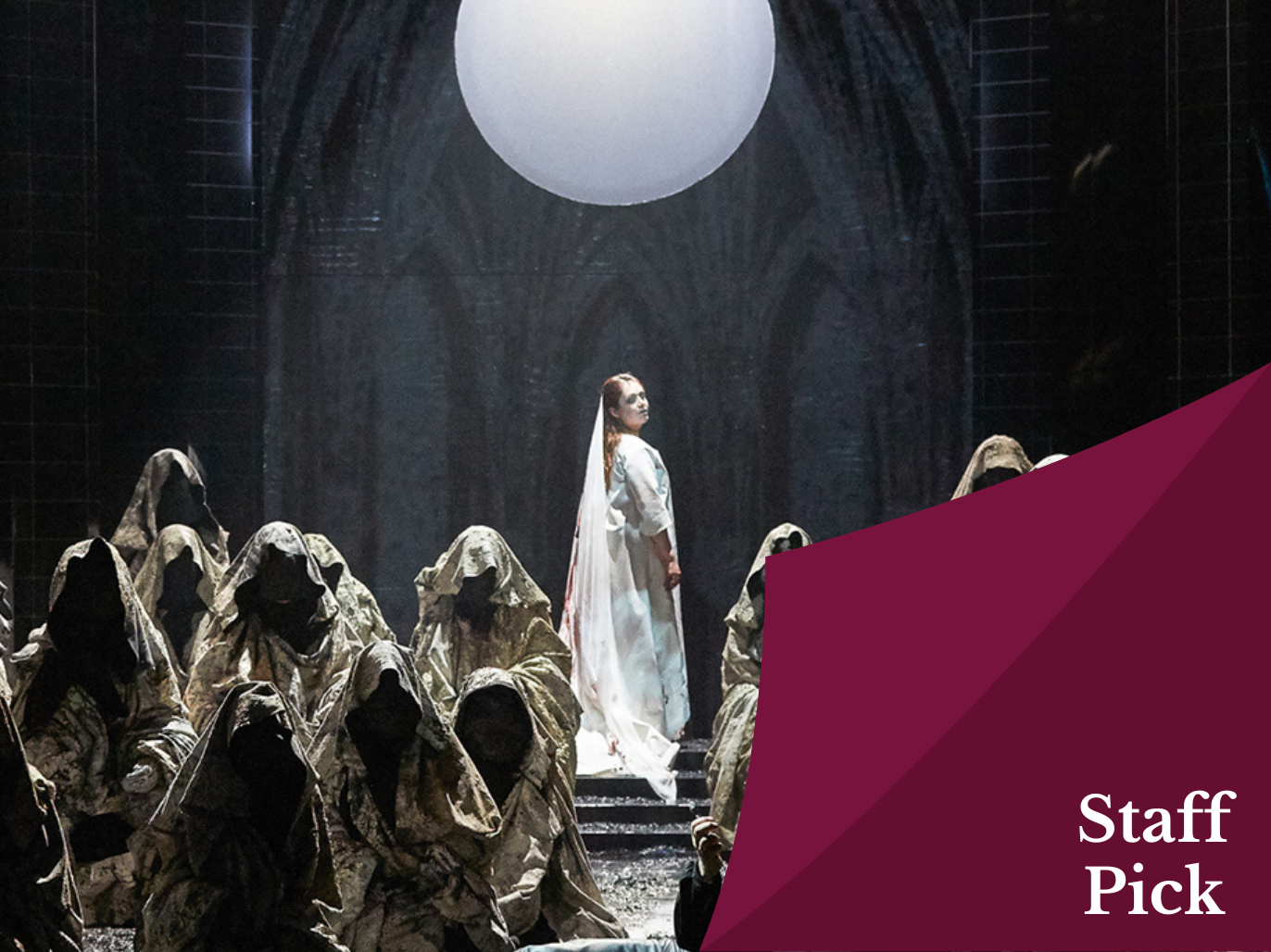As a long-time fan of fantasy and Gothic horror across literature, theatre, and cinema, I was thrilled to come across this production of Gounod’s lesser-known opera La Nonne sanglante (The Bloody Nun) at the Opéra Comique! This tale of dark romanticism weaves themes of love and vengeance throughout the story of the eponymous spectre who fools young, in-love Rodolphe by posing as Agnès, his beloved, in a haunted castle. In a spooky storyline inspired by one of my favorite authors, William Shakespeare, ghostly apparitions intervene with forbidden lovers from rival families as Gounod draws parallels with Hamlet and Romeo and Juliet (the latter of which would inspire another Gounod opera 20 years later!).
View author's page
Reading time estimated : 4 min
David Bobée entraps the characters in a fascinating staging, an eerie, spectral black permeating every corner of the stage, infusing the costumes and decor. The unique aesthetic combines medieval costumes — which call to mind Game of Thrones or Lord of the Rings — with modern elements such as neon lights that are integrated into the set. I particularly love Bobée’s instinctively cinematic staging, present in small details like ashes strewn across the stage floor and the Bloody Nun’s burnt fingers, images straight out of a horror movie. One impressively haunting scene, in which dozens of family ghosts surround a pleading Rodolphe (Michael Spyres), is worthy of a Tim Burton or Guillermo del Toro film!
Gounod’s score is full of magnificent musical moments. One of my favorite passages is in the Finale to Act I: Rodolphe is cursed by his father after revealing his forbidden love for Agnès. I’ve always been fascinated by these pivotal moments in opera when all of the voices intertwine, in this case reinforced by the chorus in a powerful surge of emotional intensity. Rodolphe slowly realizes his mistake as Agnès suffers, watching in shock as the man she loves slips out of her grasp — how can you not get goosebumps? When Agnès pledges her love, the shock transforms into happiness in an exquisite minor to major shift.
All of this emotion and drama is of course down to the exceptional performers. The marvelous tenor Michael Spyres uses his bright timbre and sublime gift for interpretation to perfectly embody the troubled protagonist, Rodolphe. Another star of the show is the late, great Jodie Devos, who absolutely floored me in a production of Poulenc’s Stabat Mater I was lucky enough to see live a few years ago. Here, she plays Rodolphe’s mischievous assistant Arthur, a character who, like Leporello in Don Giovanni, brings a touch of lightness to an otherwise very dark tale.
I absolutely love this production — it combines all of my favorite operatic elements into one true masterpiece of Gothic romanticism. Don’t miss it!

